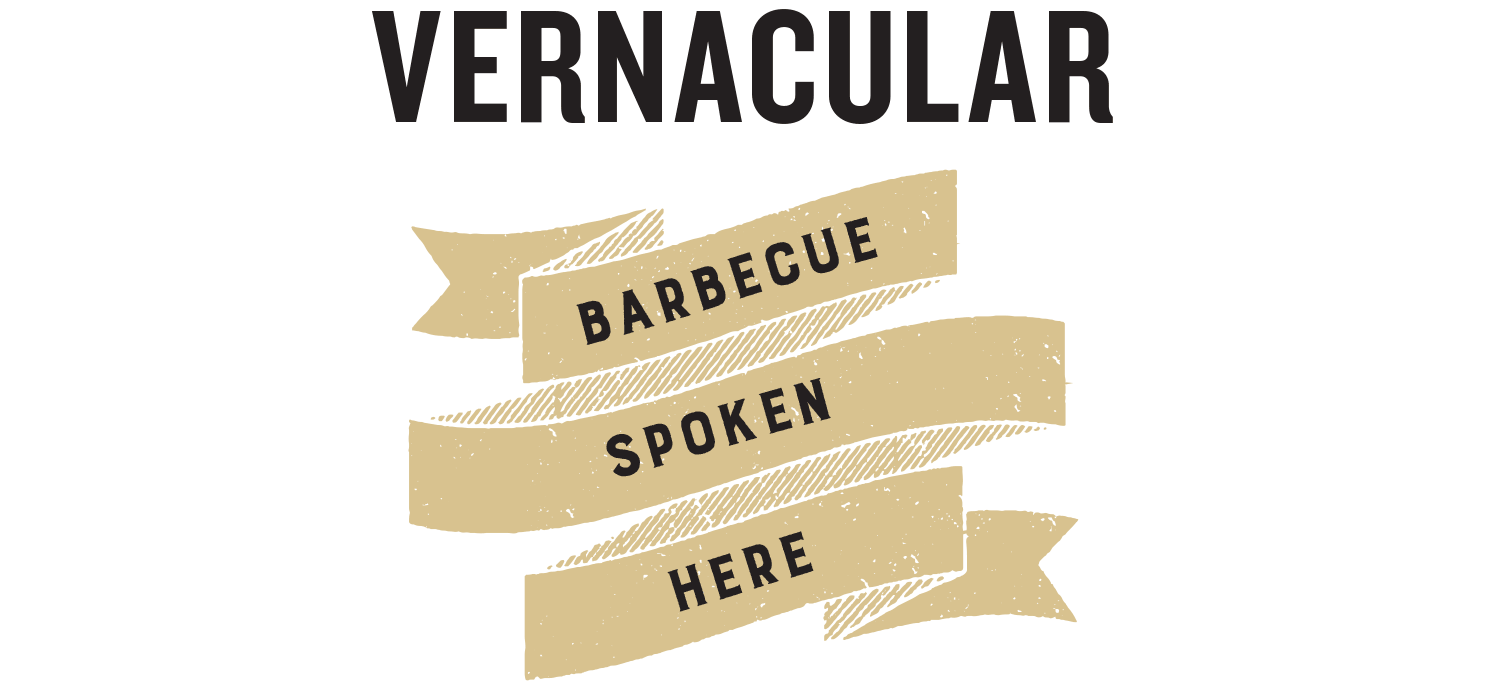 Vernacular: Barbeque Spoken Here
Vernacular: Barbeque Spoken HereBarbecue has its own language of smoke, spice, meat, and sauce—plus some actual lingo. Every region has its own dialect, and each barbecuer speaks in their very own accent. A Texan might offer you a freshly smoked hot gut (sausage), a North Carolinian might invite you to a pig pickin’ (pig roast), and folks in our neck of the woods are likely to serve you a pork steak (cut from the butt end of a pork shoulder).
In our very own particular patois, we’ve been known to put it this way:
barbecue = food + family + love

When we serve up our barbecue, be it in our backyard or at our restaurant, in a festival tent, or right here in this book, we are bringing you into our family and our home. By way of a warm welcome, we want to take make sure you’re not confused by any of our idiosyncratic turns of phrase or odd terminology.
First of all, we’re church-going God-fearing and Christians, and we intend neither blasphemy nor disrespect with our language and our metaphors. We believe God has a sense of humor. Our spiritual leaders certainly do—our rector even sports a “Praise the Lard” T-shirt.
A tidbit of geography: We’re tucked in at the southern tip of Illinois, 336 miles from Chicago. Our corner of the world is Southern Illinois—that’s with a capital S. The nearest large airport is two hours away in St. Louis, Missouri, and we’re only three hours from both Memphis and Nashville, in Tennessee. We are in close proximity to the point where the mighty Ohio and Mississippi Rivers meet—we’re decidedly Midwestern with a strong Southern twang.
Some vocabulary: What we call a peanut roll isn’t a roll at all, it’s a cakey sort of thing and it’s yummy. And there’s a peculiar slaw–chow chow hybrid known to us simply as chow. For us, bark much less often refers to what you’d find on a tree than it does the delicious crust on a piece of barbecue, and nose is a term for the fatty part of a brisket (as is point or deckle). A few words we use interchangeably: pit, smoker, cooker, grill. A pit is not a hole in the ground, and a grill is generally a device on which we use direct, high heat. A cook is the process of cooking a piece of meat on the pit, not the person preparing it—that would be the pit boss, not to be confused with the pitmaster. This honorific is bestowed upon barbecuers of the highest order—you can’t rightfully call yourself a pitmaster until, through time and trial, you have mastered the art of barbecue. Calling yourself a pitmaster without having earned the title just is not cool.
When it comes to recipe yields and portion sizes, we speak a language of abundance. Although many of our recipes are easy to scale down, others, not so much. In those cases—from pork shoulder to brisket dumplings, savory cheesecake to beer brats, vat of punch to pitcher of margaritas—there’s plenty to go around, whether it’s to fill the freezer, serve at a dinner party, take to a neighbor, or contribute to the potluck table at a contest or a church supper.
One last note: In the wider world, barbecue is a noun. It’s meat, slow-smoked over aromatic wood, dusted with spices, and swizzled with sauce. Barbecue is also a verb, referring to the action of cooking barbecue. Certain self-appointed barbecue police (vigilantes, really) will chide you for using the term to refer to cooking hamburgers and hot dogs, which are usually grilled directly over high heat. We don’t care what you call ’em. It’s all good.